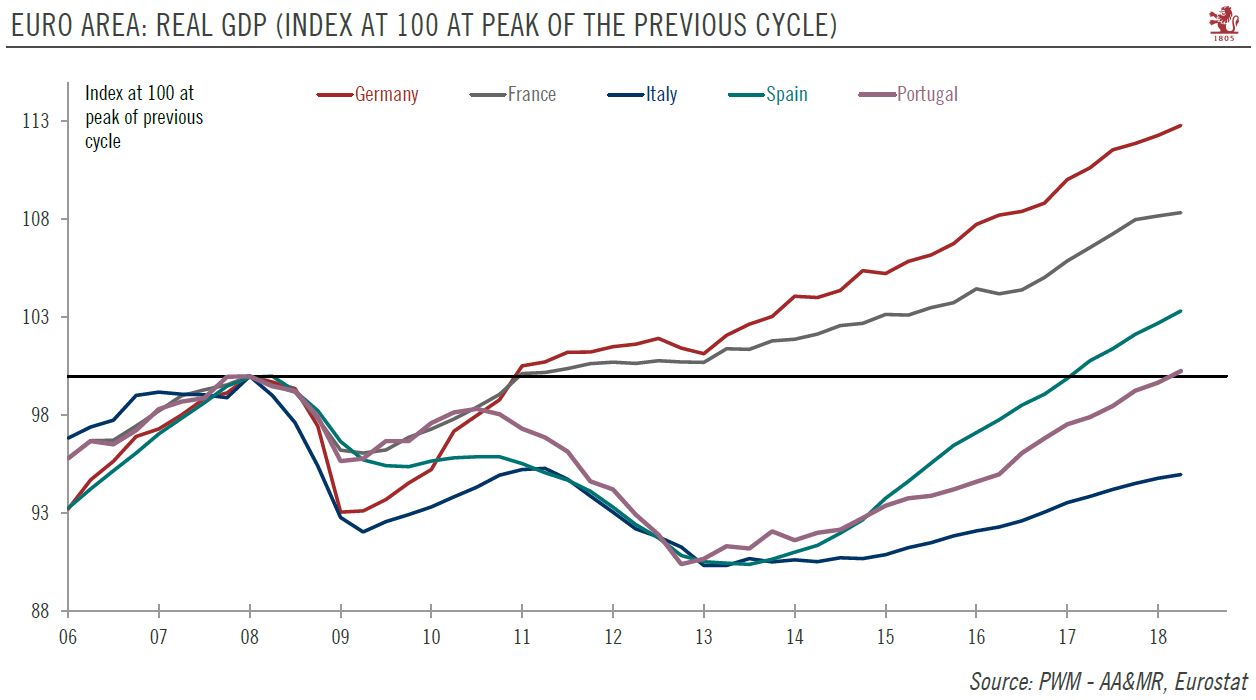September growth and unemployment rates show how far it has come.In two decades, Portugal has gone through a boom (1996-2001), a slump (2002-2007), a deep recession (2008-2013), a timid recovery (2014-2016) and now a robust economic expansion. In 2017, real GDP grew by 2.8%, its fastest pace since 2000. This is even more remarkable when considering that the country exited its bailout programme only in mid-2014. Investment and robust exports were the main growth drivers in 2017.Starting in 2018, the pace of growth slowed down somewhat, mainly due to weaker net exports, similar to other euro area countries. Part of the moderation was also explained by temporary factors, such as bad weather conditions affecting construction activities. Of note, the country surpassed its pre-crisis level in
Topics:
Nadia Gharbi considers the following as important: Euro area employment, Macroview, Portugal, Portugal rating
This could be interesting, too:
Marc Chandler writes Japan’s Q4 23 Contraction Revised Away, Helping Keep Yen Bid
Fintechnews Switzerland writes Total Funding to Portuguese Fintech Companies Surpasses EUR 1B Mark
Cesar Perez Ruiz writes Weekly View – Big Splits
Cesar Perez Ruiz writes Weekly View – Central Bank Halloween
September growth and unemployment rates show how far it has come.
In two decades, Portugal has gone through a boom (1996-2001), a slump (2002-2007), a deep recession (2008-2013), a timid recovery (2014-2016) and now a robust economic expansion. In 2017, real GDP grew by 2.8%, its fastest pace since 2000. This is even more remarkable when considering that the country exited its bailout programme only in mid-2014. Investment and robust exports were the main growth drivers in 2017.
Starting in 2018, the pace of growth slowed down somewhat, mainly due to weaker net exports, similar to other euro area countries. Part of the moderation was also explained by temporary factors, such as bad weather conditions affecting construction activities. Of note, the country surpassed its pre-crisis level in Q2 2018 (see chart below).
Unemployment peaked in 2013 at 17.5%, and fell to 6.8% in September 2018, its lowest level since 2002.
While the pace of growth is moderating, most official institutions (European Commission and the IMF) forecast solid economic activity over the coming few years (2.3% in 2018 and 1.8% in 2019). The unemployment rate is also expected to continue to decrease, albeit at a slower pace.
Economic recovery has not come without cost for the Portuguese. But now the country has gained space to introduce some fiscal stimulus while meeting the EU targets. This week, the minority socialist government unveiled its 2019 draft budget plan that proposes cutting the deficit to 0.2% of GDP, the lowest since democracy was restored in Portugal in 1974.

